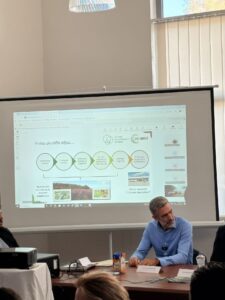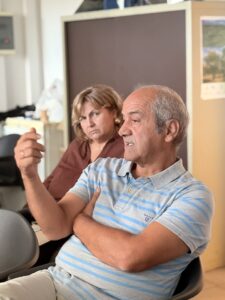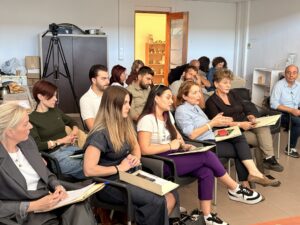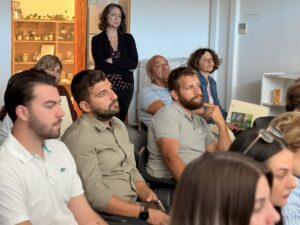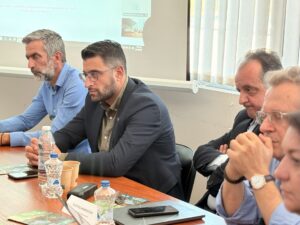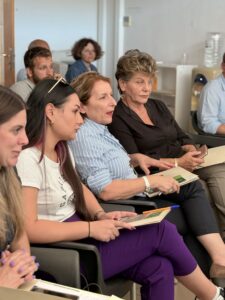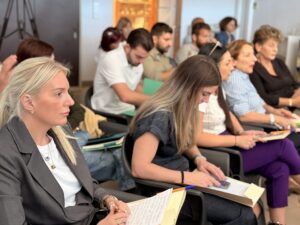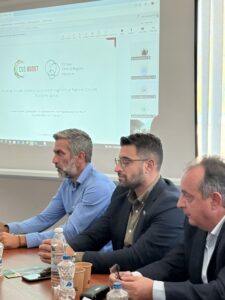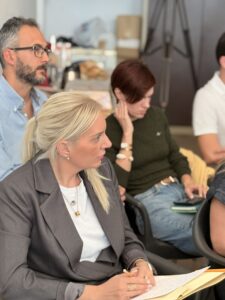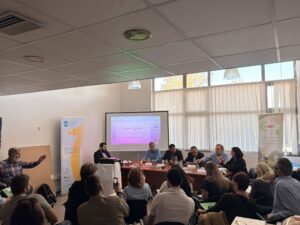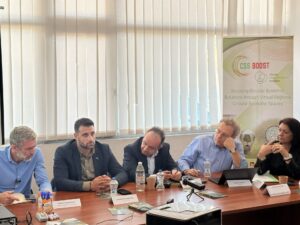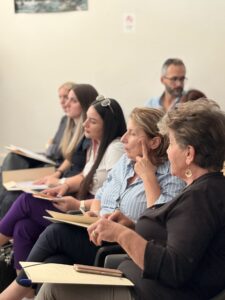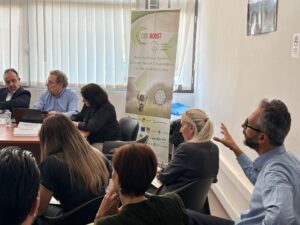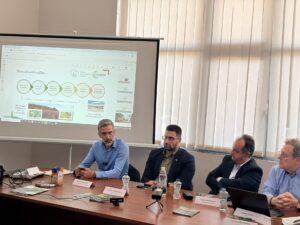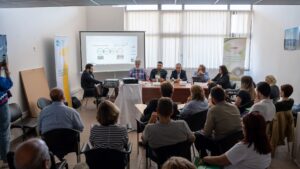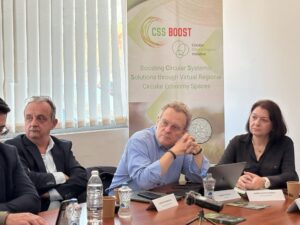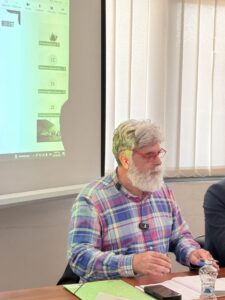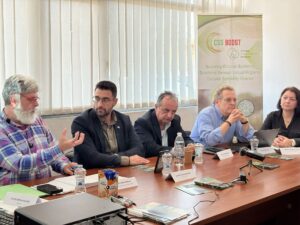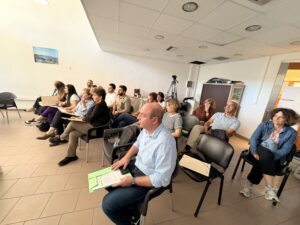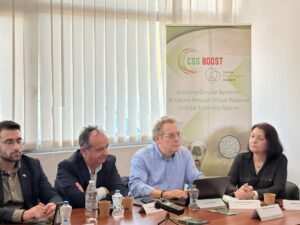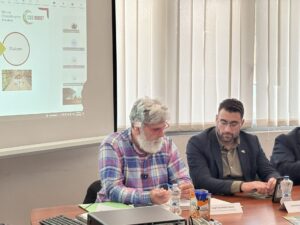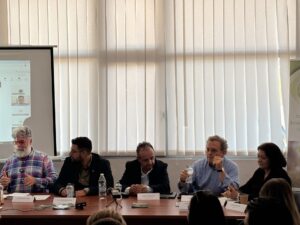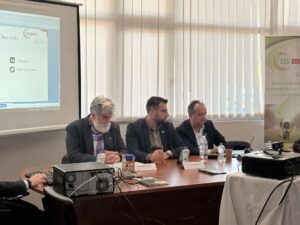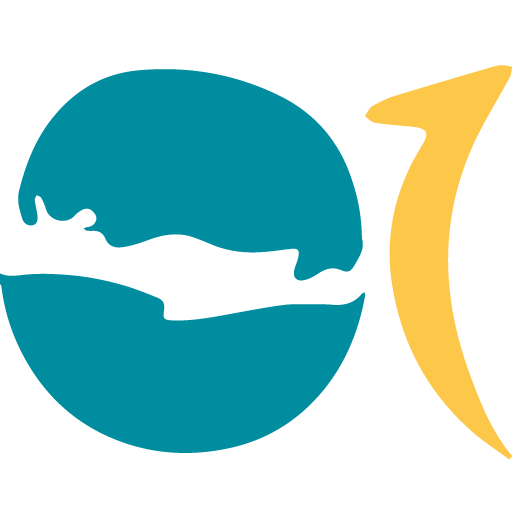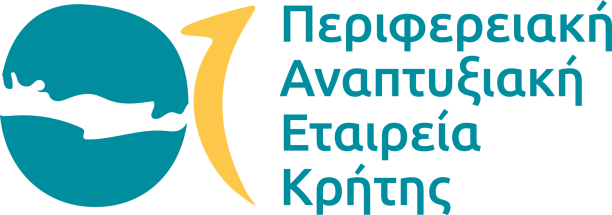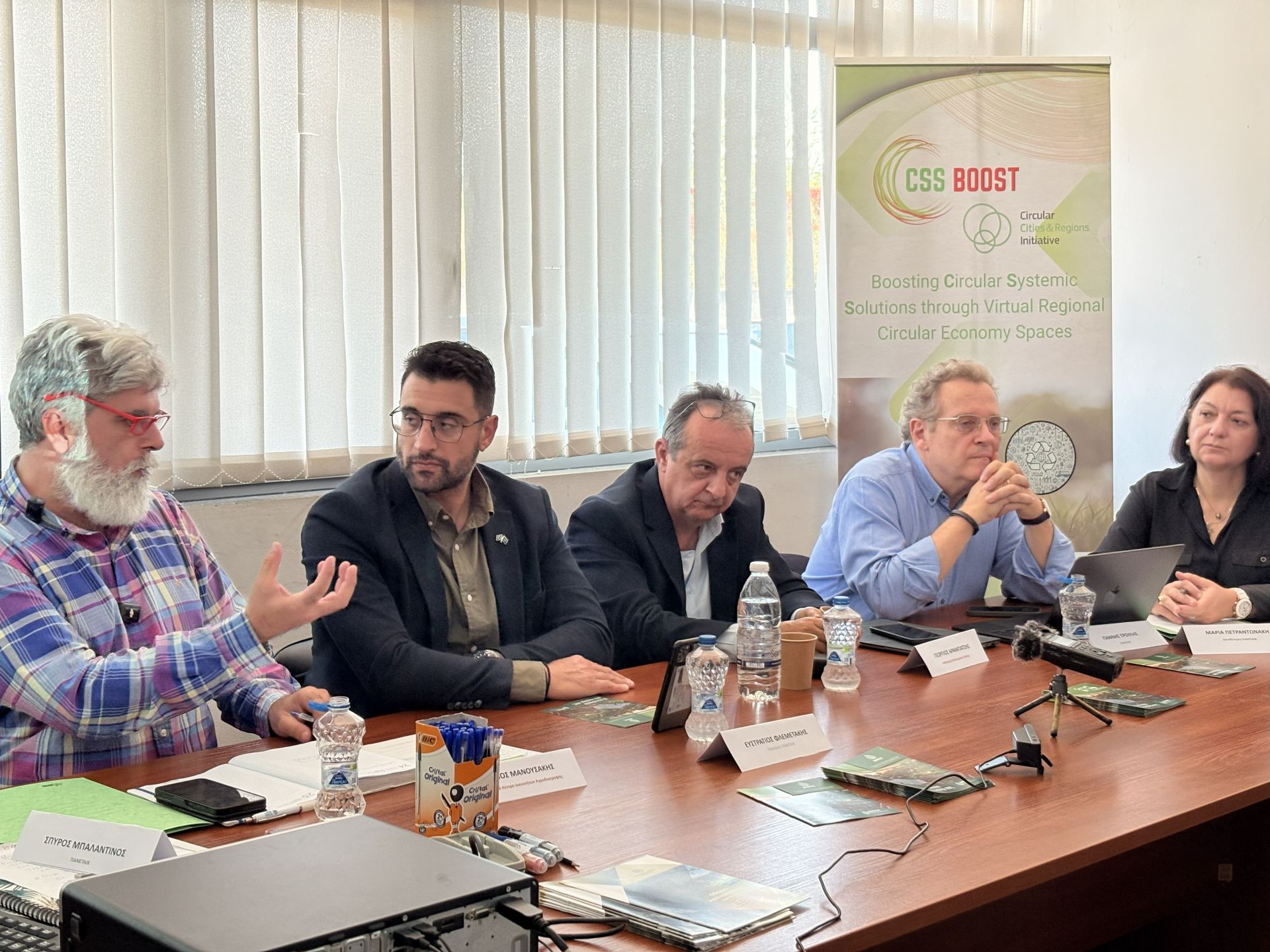
The Regional Development Agency of Crete (PANETAIK S.A.), as a partner of the European project CSSBoost (Boosting Circular Systemic Solutions) funded under Horizon Europe, organized the first participatory design meeting to engage stakeholders of the 2nd Value Chain of Pilot 1, on Friday, October 24, at the Directorate of Agricultural Development and Livestock (DAOK) in Aghia, Chania.
Welcoming the participants, the President of PANETAIK S.A., Mr. E. Flemelakis, stated:
“Through today’s dialogue, we aim to identify the most suitable approach for cultivating and implementing the new value chain, in order to enhance the sustainability, efficiency and circularity of agricultural production.”
The CSSBoost project aims to strengthen the transition toward a Circular Economy by promoting transnational and cross-sectoral collaborations among public, private and research entities. Through five pilot implementations, the project seeks to develop practices that reduce waste, optimize resource use and support local economies. The Crete Pilot (Pilot 1) focuses on the development of three new value chains in the agri-food sector, emphasizing green practices such as green manuring, which improve soil fertility and promote the sustainable use of natural resources.
Mr. G. Manousakis, representative of the Mediterranean Agri-Food Competence Centre (MACC), lead partner of Pilot 1, presented the objectives of the 2nd value chain, which focuses on the collection and processing of agricultural residues from legume crops for the production of green fertilizers and biostimulants. These practices aim to enhance soil fertility and reduce chemical fertilizer use. He also presented the results of the first field pilot, currently being implemented by a volunteer farmer from Heraklion, who shared his experience with the participants.
Professor G. Arampatzis from the Technical University of Crete, coordinator and lead partner of CSSBoost, gave a brief overview of the project, participated in the discussions and expressed his positive impressions of the meeting’s outcomes and the active involvement of stakeholders.
In addition to project partners, the meeting was attended by farmers, agronomists from the Directorate of Agricultural Economy and Veterinary Services of the Region of Crete, representatives of the wholesale and retail fruit and vegetable sector and members of the Chania Chamber of Commerce and Industry as well as the Geotechnical Chamber of Crete, confirming the shared interest in advancing and applying circular systemic solutions in the agri-food sector.
Through open dialogue, participants exchanged views on how best to encourage and support farmers in adopting the new circular value chain. The discussion emphasized the common goal of enhancing sustainability, efficiency and circularity in agricultural production, laying the groundwork for actions that can serve as models for other European regions.
